For centuries such heinous crimes were committed against millions of victims around the world, yet few of the perpetrators have been brought to justice. Now, with the establishment of the world’s first permanent International Criminal Court, individuals will be held accountable for the most serious atrocities against human dignity; war crimes, crimes against humanity and genocide. In addition, the Court will also deal with the crime of aggression once it is defined.
(International criminal court)
-WFWW-
၄၂ ႏွစ္ၾကာ အာဏာကုိ မစြန္႔လႊတ္ပဲ၊ တုိင္းၿပည္ကုိ အၾကမ္းဖက္ အုပ္ခ်ဳပ္ခဲ့တဲ့ လစ္ဗ်ားေခါင္းေဆာင္ ကဒါဗီကုိ ႏုိင္ငံတကာ ရာဇ၀တ္မႈဆုိင္ရာ တရားရုံးက ဖမ္း၀ရမ္းထုတ္ဖုိ႔ ဆုံးၿဖတ္ခ်က္ခ်လုိက္ပါၿပီ။ အာဏာရွင္ ကဒါဗီဟာ ၿမန္မာႏုိင္ငံက နအဖ စစ္ေခါင္းေဆာင္ေတြ လုိ ႏုိင္ငံေရးဂေယာင္ေခ်ာက္ၿခား ေရာဂါ စြဲကပ္ခံစားေနရသူၿဖစ္ၿပီး၊ အၾကမ္းဖက္မႈေတြ၊ လူသားမ်ိဳးႏြယ္ေတြအေပၚ လူသားမဆန္စြာၿပစ္မႈက်ဴးလြန္ခဲ့တ့ဲ ရာဇ၀တ္မႈေတြေၾကာင့္ ဖမ္း၀ရမ္းထုတ္ခဲ့ရၿခင္းၿဖစ္ေၾကာင္း ႏုိင္ငံတကာ ရာဇ၀တ္မႈဆုိင္ရာ တရားရုံး က ဆုံၿဖတ္ခဲ့ၿခင္းၿဖစ္ပါတယ္။
အာဏာရွင္ ကဒါဗီရဲ႕ သားၿဖစ္သူ saif နဲ႔ ေယာက္ဖေတာ္သူ ေထာက္လွမ္းေရးအၾကီး အကဲ Abdullah al-Sennoussi တုိ႔ကုိလည္း လူသားမ်ိဳးႏြယ္မ်ားအေပၚၿပစ္မႈ က်ဴးလြန္ခဲ့မႈေတြေၾကာင့္ ဖမ္း၀ရမ္း အသီးသီးထုတ္လုိက္ေၾကာင္း ဆုံၿဖတ္ခဲ့ပါတယ္။
Pre-Trial Chamber I, composed of Judges Sanji Mmasenono Monageng (Presiding), Sylvia Steiner and Cuno Tarfusser, issues three warrants of arrest © ICC-CPI
Today, 27 June 2011, Pre-Trial Chamber I of the International Criminal Court (ICC) issued three warrants of arrest respectively for Muammar Mohammed Abu Minyar Gaddafi, Saif Al-Islam Gaddafi and Abdullah Al-Senussi for crimes against humanity (murder and persecution) allegedly committed across Libya from 15 February 2011 until at least 28 February 2011, through the State apparatus and Security Forces.
The Chamber, composed of Judges Sanji Mmasenono Monageng (Presiding), Sylvia Steiner and Cuno Tarfusser, considered that there are reasonable grounds to believe that the three suspects committed the alleged crimes and that their arrests appear necessary in order to ensure their appearances before the Court; to ensure that they do not continue to obstruct and endanger the Court’s investigations; and to prevent them from using their powers to continue the commission of crimes within the jurisdiction of the Court.
The situation in Libya was referred to the ICC Prosecutor by the United Nations Security Council, through the unanimous adoption of Resolution 1970 on 26 February 2011. The Security Council decided, under Chapter VII of the United Nations Charter, that “the Libyan authorities shall cooperate fully with and provide any necessary assistance to the Court and the Prosecutor pursuant to this resolution” and, while recognizing that States not party to the Rome Statute have no obligations under the Statute, the Security Council urged all States and concerned regional and other international organisations to cooperate fully with the Court and the Prosecutor.
On 3 March 2011, the ICC Prosecutor decided to open an investigation and requested, on 16 May 2011, the issuance of the arrest warrants.





















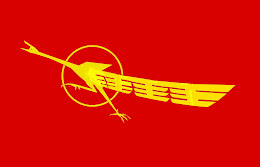





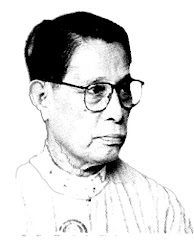




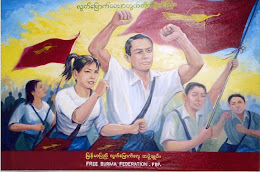





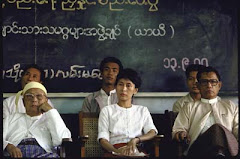

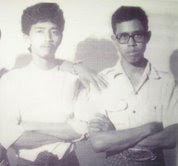

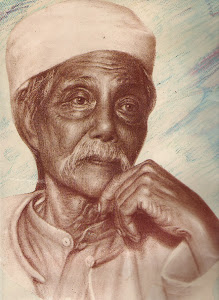
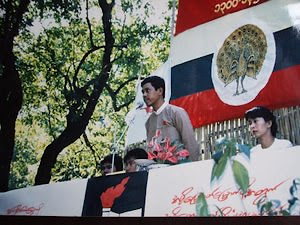
1 comment :
HOW ABOUT MYANMA MILITARY JUNTA?
Post a Comment